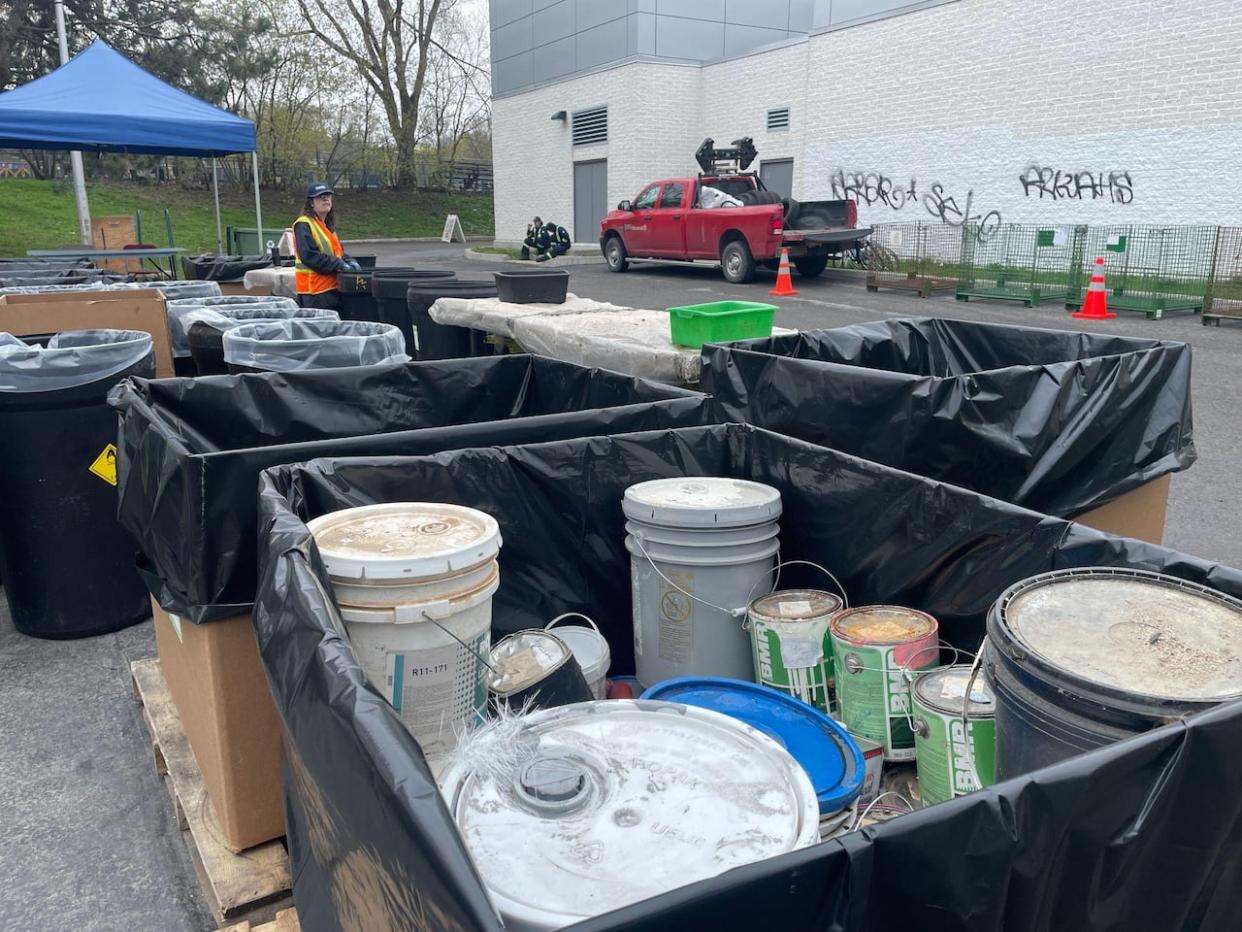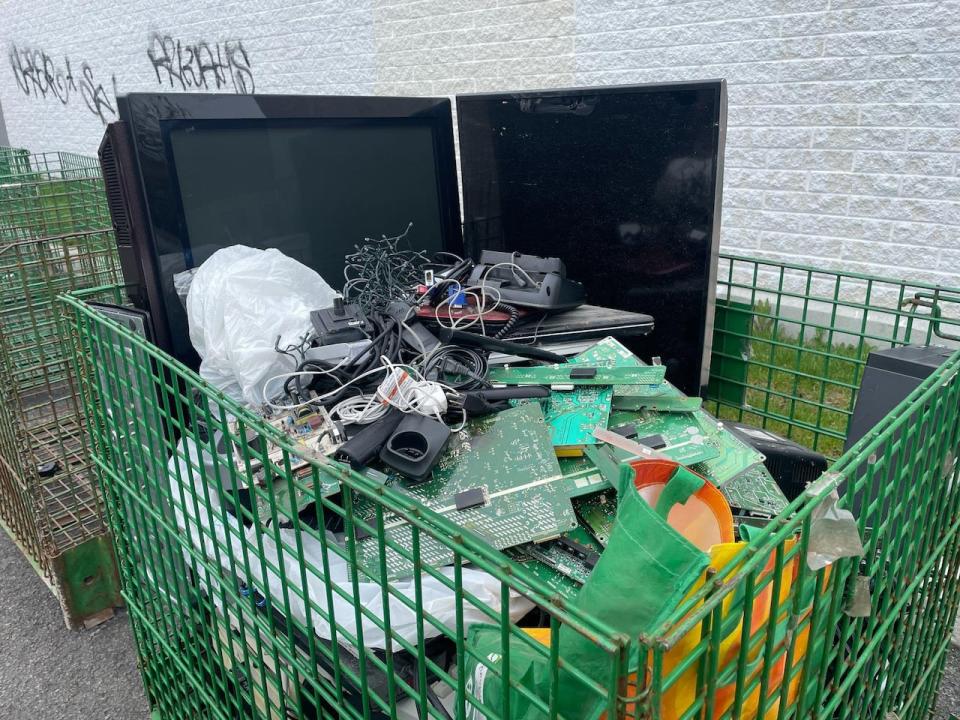Montreal city workers will come to a park near you to collect hazardous waste

The city of Montreal is setting up 30 travelling collection sites for hazardous household waste like batteries, nail polish bottles, propane canisters and cleaning products.
Other products collected include old tires, electronics, solvants, and anything involving paint or gas.
These kinds of materials are not meant to be thrown in the trash, and the city has bylaws in place on how to sort garbage. People can consult the collection schedule or bring their waste to an ecocentre.
Ecocentres are among the only places Montrealers can drop off large recyclable items, hazardous household waste and trash from construction.
Phillipe Sabourin, a city spokesperson, said Montreal is trying to eliminate toxic chemical products in a respectful way for the environment.
He says it can be hard for residents to make their way to one of the city's seven ecocentres if they don't have a car. So, the city is meeting them where they are.
"It's a way for citizens to do their part for the environment," he said.
The city collects an average of 150 tonnes of this type of waste per year, said Sabourin. People just need to bring their sorted materials, ID and proof of residence to the drop-off point.

Electronics are among items that should not be thrown in the trash and should instead be taken to an ecocentre to be recycled. (Sharon Yonan-Renold/CBC )
"There's consequences for the environment. The toxic gas could exit from the propane canister, for example, that could pose a risk for an incident like a fire — but it can also pose a risk to the health of citizens," he said.
"So it's never a good idea to bring those dangerous materials in the recycling or the garbage."
Sarah Shemali, a volunteer for Go-Recycle specializing in the recycling of refrigeration products, said it will be a process for people to change their recycling habits. For example, fridges shouldn't be put out on the curb and should be brought to an ecocentre for the metal and gas to be repurposed.
But she said many don't know about ecocentres, and meeting people in the parks near their homes is also an opportunity for recycling education.
"We can always do more," she said.
"I think people are more aware that they can't throw just anything away in the garbage … it's hazardous to them, the house, the air and the water."

